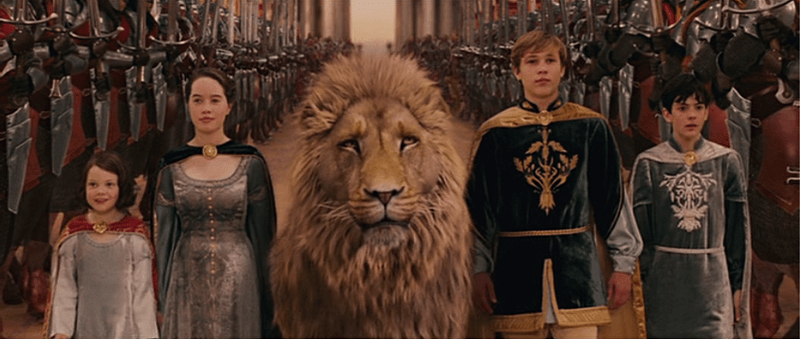There’s finally a new rumor about Netflix’s upcoming Chronicles of Narnia project. According to the rumor from “What’s On Netflix,” Netflix is looking to kick of their Chronicles of Narnia franchise with two films, both to be directed by Greta Gerwig.
Greta Gerwig is an extremely busy actor and director, with credits including Little Women, Lady Bird, Mistress America, and Frances Ha. In December, she’ll be starring as Babbette in Netflix’s White Noise. She is also writer and director on Warner Bros.’ film Barbie and is a writer on Disney’s live-action adaptation of Snow White, which is scheduled to release in 2024.
With a sleight that packed, we wonder when she’ll have time to direct not just one, but two, films for release on Netflix. However, she has already finished filming on Barbie. Interesting to note, that film’s composer is Alexandre Desplat, who also composed the score for her film Little Women. Could he also be a possible composer for the new Narnia franchise? We’ll see.
It’s important to note that this is all we know at this time. We don’t know what books are going to be adapted yet, nor who is writing. Two of Greta Gerwig’s films have been nominated for the Academy Award for Best Picture, so if that’s anything to go by, I think Narnia is in capable hands at the very least. We’ll have to wait and see what stories they are going to tell with these first two films.
What are your thoughts? Have you seen any of her other adaptations? Are you a fan? Comment below!
Big thanks to William O’Flaherty for the heads up!

The post Greta Gerwig to direct Two Chronicles of Narnia movies for Netflix? appeared first on Narnia Fans.
Link: https://narniafans.com/2022/11/greta-gerwig-to-direct-two-chronicles-of-narnia-movies-for-netflix/
Greta Gerwig is an extremely busy actor and director, with credits including Little Women, Lady Bird, Mistress America, and Frances Ha. In December, she’ll be starring as Babbette in Netflix’s White Noise. She is also writer and director on Warner Bros.’ film Barbie and is a writer on Disney’s live-action adaptation of Snow White, which is scheduled to release in 2024.
With a sleight that packed, we wonder when she’ll have time to direct not just one, but two, films for release on Netflix. However, she has already finished filming on Barbie. Interesting to note, that film’s composer is Alexandre Desplat, who also composed the score for her film Little Women. Could he also be a possible composer for the new Narnia franchise? We’ll see.
It’s important to note that this is all we know at this time. We don’t know what books are going to be adapted yet, nor who is writing. Two of Greta Gerwig’s films have been nominated for the Academy Award for Best Picture, so if that’s anything to go by, I think Narnia is in capable hands at the very least. We’ll have to wait and see what stories they are going to tell with these first two films.
What are your thoughts? Have you seen any of her other adaptations? Are you a fan? Comment below!
Big thanks to William O’Flaherty for the heads up!

The post Greta Gerwig to direct Two Chronicles of Narnia movies for Netflix? appeared first on Narnia Fans.
Link: https://narniafans.com/2022/11/greta-gerwig-to-direct-two-chronicles-of-narnia-movies-for-netflix/
